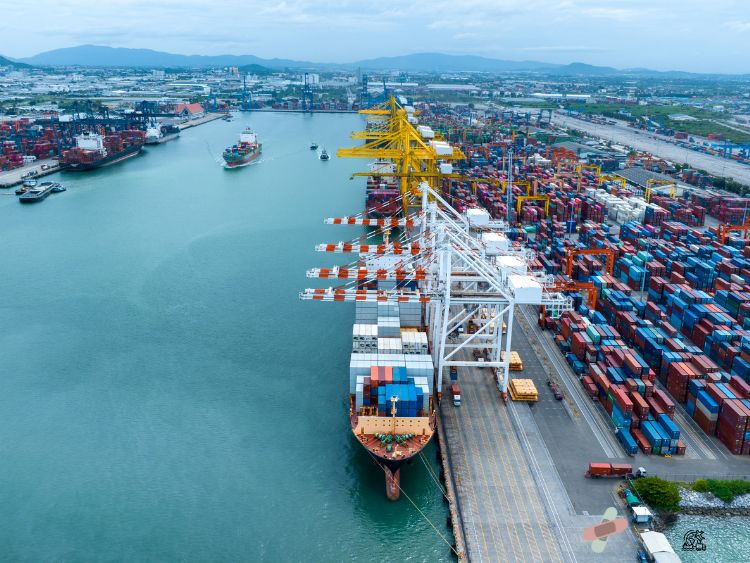In the intricate tapestry of global commerce, the apparel industry stands out as a vibrant and dynamic sector. From haute couture to everyday wear, the demand for apparel transcends geographical boundaries, making it a cornerstone of international trade. Within this intricate web of supply chains, logistics plays a pivotal role, and at the heart of logistics lies freight forwarding. In this article, we delve into the strategic significance of freight forwarding in the global apparel trade, exploring its functions, challenges, and evolving trends.
It is a multifaceted service that facilitates the movement of goods from manufacturers to consumers across international borders. In the context of the apparel industry, where speed-to-market, cost efficiency, and quality control are paramount, it assumes heightened significance. Apparel companies rely on freight forwarders to coordinate the complex logistics involved in sourcing raw materials, manufacturing, and distributing finished garments to diverse markets worldwide.
The Role of Freight Forwarders
- Supply Chain Optimization: Freight forwarders leverage their expertise to optimize supply chain operations, ensuring seamless movement of goods from production hubs to distribution centers. By employing advanced logistics solutions and leveraging transportation networks, they minimize transit times and reduce inventory holding costs.
- Customs Compliance: Navigating the labyrinth of customs regulations and trade tariffs is a daunting task for apparel exporters and importers. Freight forwarders specialize in customs clearance procedures, ensuring compliance with diverse regulatory frameworks across different countries. Their adept handling of documentation and regulatory requirements facilitates smooth clearance at ports of entry, mitigating the risk of delays and penalties.
- Transportation Management: Choosing the right mode of transportation is critical in apparel trade, where time-sensitive fashion trends demand swift delivery. Freight forwarders offer a range of transport options, including air, sea, road, and rail freight, tailored to the specific needs of apparel shipments. Whether it’s expedited air cargo for high-value designer garments or cost-effective sea freight for bulk orders, freight forwarders orchestrate the optimal transportation mix to meet client requirements.
- Risk Mitigation: The global apparel supply chain is vulnerable to various risks, including natural disasters, geopolitical tensions, and market fluctuations. Freight forwarders play a proactive role in risk management, offering insurance services, contingency planning, and supply chain visibility tools to mitigate potential disruptions. By diversifying transportation routes and employing robust tracking systems, they enhance the resilience of apparel supply chains against unforeseen contingencies.
- Value-Added Services: Beyond core freight management, forwarders provide an array of value-added services to apparel clients, ranging from warehousing and distribution to garment labeling and quality inspections. These supplementary services enhance operational efficiency and add value throughout the supply chain, enabling apparel companies to focus on core competencies while outsourcing non-core activities to specialized partners.
Challenges and Emerging Trends
Despite its strategic importance, freight forwarding in the apparel industry faces several challenges and is subject to evolving trends that reshape the competitive landscape:
- Supply Chain Disruptions: The COVID-19 pandemic underscored the vulnerability of global supply chains to unforeseen disruptions. Apparel companies are reevaluating their sourcing strategies, diversifying supplier networks, and embracing digital technologies to enhance supply chain resilience. Freight forwarders must adapt to these changing dynamics, offering agile solutions that address the evolving needs of their apparel clients.
- Sustainability Imperative: With growing awareness of environmental and social sustainability, apparel companies are under pressure to adopt eco-friendly practices across their supply chains. Freight forwarders play a crucial role in promoting sustainability by offering carbon-neutral transportation options, optimizing route planning to minimize emissions, and supporting initiatives for ethical sourcing and fair labor practices.
- Digital Transformation: The digitalization of logistics is reshaping the freight forwarding landscape, with technology-enabled solutions streamlining processes and enhancing visibility. From blockchain-based supply chain platforms to AI-powered predictive analytics, forwarders are leveraging cutting-edge technologies to drive efficiency, transparency, and collaboration across the apparel supply chain.
- E-commerce Boom: The rise of e-commerce has transformed consumer shopping habits, driving demand for faster, more flexible logistics solutions. Apparel companies are increasingly turning to freight forwarders with expertise in e-commerce fulfillment, last-mile delivery, and reverse logistics to capitalize on the booming online retail market.
Conclusion:
In the fast-paced world of global apparel trade, freight forwarding emerges as a linchpin that connects manufacturers, retailers, and consumers across continents. Its strategic significance lies not only in facilitating the physical movement of goods but also in optimizing supply chain performance, mitigating risks, and adding value through tailored logistics solutions. As the apparel industry continues to evolve in response to changing consumer preferences, technological innovations, and sustainability imperatives, freight forwarders will play an increasingly pivotal role in shaping the future of global fashion supply chains. By embracing innovation, fostering collaboration, and staying attuned to emerging trends, freight forwarders can navigate the threads of change and weave a resilient and prosperous future for the apparel industry. For more information, visit https://www.shiply.com/de/speditionsversand/






